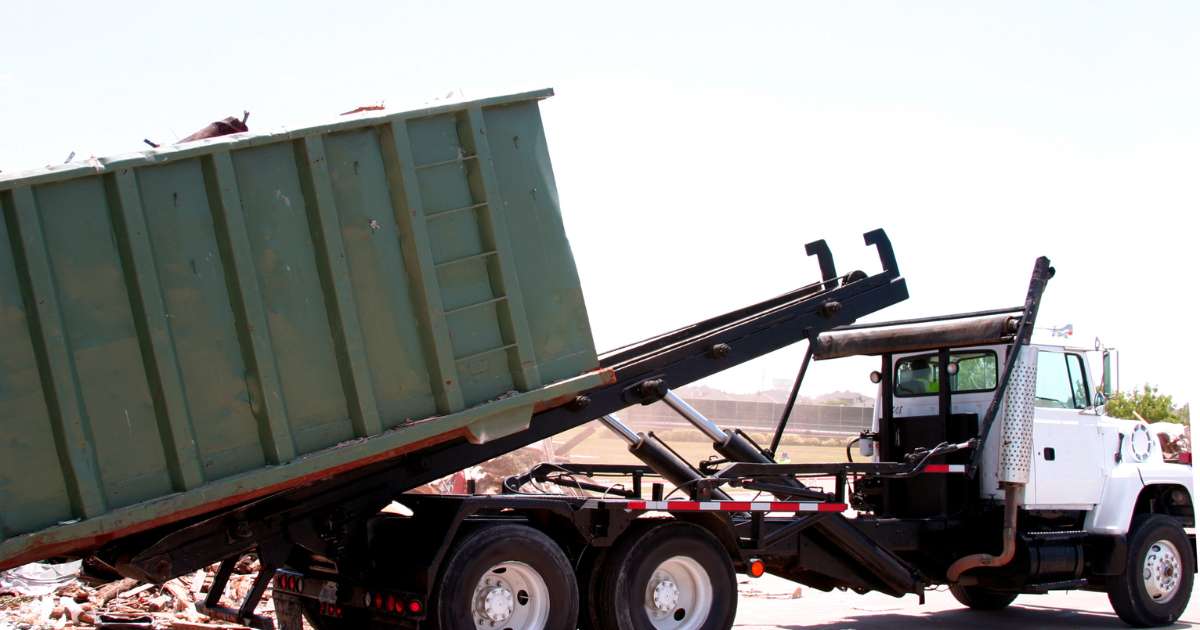When planning for a home renovation, landscaping project, or even a major decluttering effort, a 10-yard dumpster rental can be an essential part of managing waste efficiently.
Knowing the costs associated with renting this size of the dumpster is crucial to budgeting and ensuring that the project runs smoothly without unexpected expenses.
The cost of a 10-yard dumpster rental is influenced by various factors, including geographic location, the type of debris, the duration of the rental, and any additional fees that may apply. Below is a comprehensive analysis of what you can expect when renting a 10-yard dumpster.
Average Cost Range
The cost to rent a 10-yard dumpster generally falls within the range of $250 to $550 for a standard rental period, which is typically 7 days. However, depending on your location, type of debris, and specific project requirements, costs can vary. It’s important to understand these variables to get an accurate estimate tailored to your needs.

Geographic Location and Its Impact
Urban vs. Rural Pricing:
Urban Areas: Renting a dumpster in a densely populated city can be more expensive due to higher demand, limited space, and higher disposal fees. For example, in cities like New York or Los Angeles, prices might be on the higher end of the scale. For those in urban environments, understanding permit requirements for dumpster rentals is also important.
Rural Areas: In rural areas with lower populations, the cost may be more affordable due to reduced demand and lower disposal expenses. However, limited availability, with only one or two providers, might lead to slightly higher prices.
Regional Disposal Fees:
Disposal fees, or tipping fees, are charges levied by landfills or transfer stations for disposing of waste. These fees vary widely from region to region and can significantly impact the total cost of your dumpster rental. Areas with strict environmental regulations or limited landfill space may have higher disposal fees, driving up the cost of your rental.
Local Taxes and Fees:
Depending on the jurisdiction, local taxes, environmental fees, or administrative charges may be added to the base rental cost. These additional fees can range from a few dollars to a significant amount, depending on local regulations.

Understanding the Type of Debris
Heavy Debris: If you’re dealing with heavy materials such as concrete, asphalt, or brick, you may face additional charges due to the increased weight. C&D waste often requires specific disposal processes, which can incur higher fees.
Bulkier Items: Large, bulky items such as old appliances, furniture, or large tree stumps may require special handling or additional space, which could also affect the rental cost.
Household and General Waste: For general household cleanouts or smaller renovations, the waste is typically lighter, which may keep costs lower. However, ensure that all items are approved for disposal, as certain household items may be prohibited or require special disposal.
Hazardous Materials: Disposing of hazardous materials like paints, chemicals, batteries, or asbestos requires special handling and disposal methods. This can lead to additional charges, as such materials must be processed separately to comply with environmental regulations. For more guidance, read about disposing of hazardous materials via dumpster.
Learn more about the types of debris that can be disposed of in a dumpster on our What Can Go in a Dumpster? page
Rental Duration and Flexibility
Standard 7-Day Rental Period: The majority of rental agreements offer a 7-day rental period. This timeframe is usually sufficient for most small to medium-sized projects. The rental cost for this period is typically included in the base price, but if you need the dumpster for a shorter time, some companies may offer discounts. For more detailed information on how long you can keep a dumpster, visit our How Long Can You Keep a Dumpster? page.
Daily Extension Fees: If your project requires more time, most rental companies allow you to extend the rental period for an additional daily fee. This fee can range from $5 to $15 per day, depending on the company and location. It’s advisable to negotiate this fee upfront to avoid surprises.
Flexibility in Scheduling: Some companies may offer a discount if you finish your project early and request an early pickup. However, this is not always guaranteed, so it’s important to clarify these details with your provider.

Weight Limits and Overage Fees
Standard Weight Allowance: Most 10-yard dumpsters have a weight allowance of 1 to 2 tons (2,000 to 4,000 pounds). This is generally sufficient for projects like small home cleanouts or light construction debris. However, if you exceed this weight limit, overage fees will apply.
Overage Fees: Overage fees typically range from $50 to $100 per ton. It’s important to have a rough estimate of your debris weight to avoid these extra costs. Some rental companies provide weight calculators or guidelines to help you estimate your waste accurately.
Safety Regulations: Overfilling the dumpster above the rim can lead to additional charges or refusal of service, as it can pose safety risks during transport. Always adhere to the fill line indicated on the dumpster to avoid these issues.
Additional Fees to Consider
Delivery and Pickup Fees: While some companies include delivery and pickup in the rental price, others may charge separately. This fee can range from $50 to $150, depending on the distance between your location and the rental company’s base of operations.
Permit Requirements: If you plan to place the dumpster on a public street or sidewalk, a permit may be required. Permit fees vary by municipality but typically range from $20 to $100. It’s important to obtain this permit before the dumpster is delivered to avoid fines.
Environmental Fees: Some areas may charge additional environmental fees to cover the cost of proper waste disposal and recycling. These fees are often included in the rental cost but can be itemized separately, depending on the company.
Special Scheduling Fees: Some rental companies may charge extra for weekend or holiday deliveries and pickups. If your project requires these scheduling options, be sure to inquire about any potential surcharges. Strategies for Cost Management
Get Multiple Quotes:
To ensure you’re getting the best rate, it’s advisable to obtain quotes from several rental companies. Be sure to ask about any additional fees, such as overage charges, delivery fees, or environmental surcharges.
Accurate Project Estimation: Planning the scope and duration of your project can prevent unnecessary rental extensions and overage fees. If unsure, discuss your project details with the rental company, as they can provide guidance on the appropriate dumpster size and rental duration.
Opt for Local Providers: Local companies often offer more competitive rates due to lower overhead costs. They may also have better knowledge of local regulations, making the rental process smoother.
Consider Weight vs. Volume: Understand that the cost can be influenced more by weight than by volume. Light but bulky materials may not incur additional fees, while heavy debris like dirt or concrete could lead to overage charges. Properly estimating the type and weight of debris can help you avoid unexpected costs.
Frequently Asked Question
What is the average price for renting a 10-yard dumpster?
The average cost of renting a 10-yard dumpster typically ranges from $250 to $550 for a standard 7-day rental period. However, prices can vary depending on your location, the type of debris, and any additional fees that may apply.
How does geographic location affect the cost of a 10-yard dumpster rental?
Geographic location plays a significant role in the cost of a 10-yard dumpster rental. Urban areas often have higher rental rates due to increased demand, limited space, and higher disposal fees. In contrast, rural areas may offer lower prices but might have limited availability of services.
What types of debris can influence the cost of a 10-yard dumpster rental?
The type of debris you plan to dispose of can greatly impact the cost. For example:
Heavy Debris (e.g., concrete, asphalt, brick): May incur additional charges due to weight.
Bulky Items (e.g., furniture, appliances): Could require special handling or additional space.
Hazardous Materials: Disposing of hazardous materials like chemicals or asbestos requires special processing and can lead to higher costs.
How long is the standard rental period for a 10-yard dumpster, and can it be extended?
The usual rental duration for a 10-yard dumpster is generally 7 days.If you need the dumpster for a longer period, most companies allow extensions for an additional daily fee, usually ranging from $5 to $15 per day.
What is the weight limit for a 10-yard dumpster, and what happens if I exceed it?
Most 10-yard dumpsters have a weight limit of 1 to 2 tons (2,000 to 4,000 pounds). If you exceed this limit, you may be charged overage fees, which typically range from $50 to $100 per ton. It’s important to estimate the weight of your debris to avoid these extra costs.
Can I save money by renting a 10-yard dumpster for a shorter period?
Some companies may offer discounts for shorter rental periods, though this is not always guaranteed. It’s best to inquire with the rental provider to see if they offer such options.
What happens if I need the dumpster picked up earlier than planned?
If you finish your project ahead of schedule, you can usually request an early pickup. Some companies might offer a discount for early pickup, but this depends on the provider’s policies.
Conclusion
Renting a 10-yard dumpster is a practical and cost-effective solution for managing waste during smaller projects. The cost is influenced by various factors, including geographic location, the type of debris, rental duration, and additional fees.
By carefully considering these factors and planning your project accordingly, you can optimize your budget and ensure a smooth waste management process.
Whether you’re a homeowner tackling a renovation or a contractor managing a small construction site, a 10-yard dumpster provides the capacity and convenience needed to keep your project on track and within budget.
